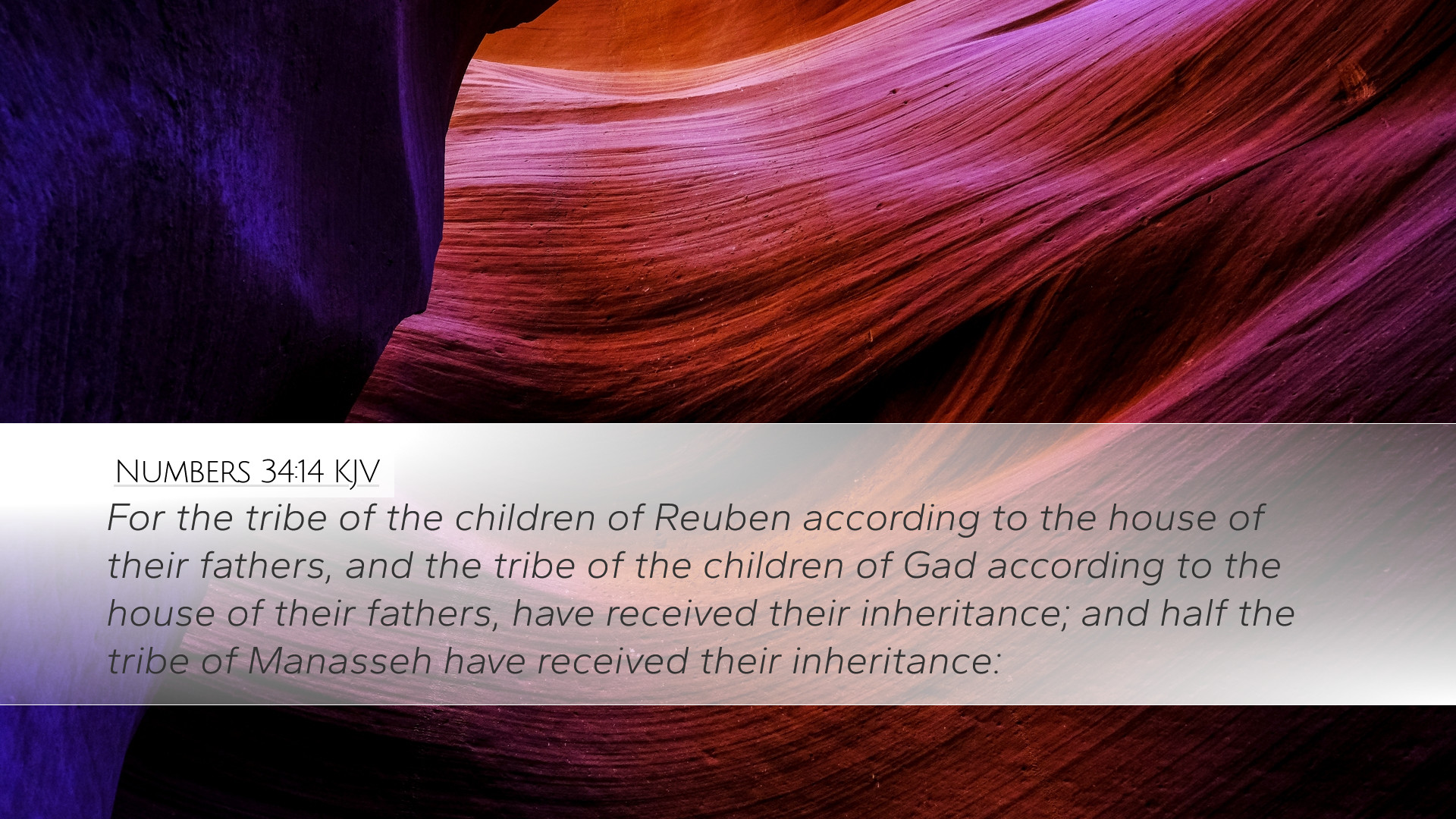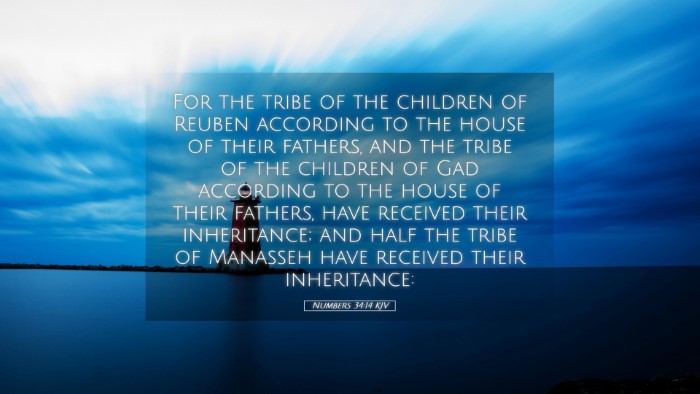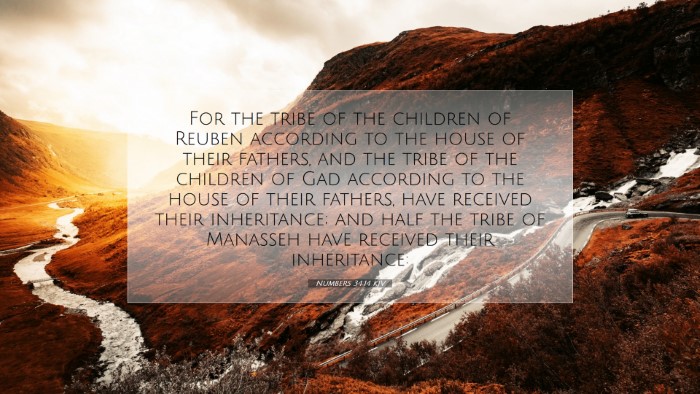Commentary on Numbers 34:14
Verse Text: Numbers 34:14 - "For the tribe of the children of Reuben according to the house of their fathers, and the tribe of the children of Gad according to the house of their fathers, have received their inheritance, and half the tribe of Manasseh have received their inheritance."
Introduction
The passage of Numbers 34:14 is pivotal within the context of the Israelite journey and settlement in the Promised Land. The allocation of land among the tribes not only reveals the fulfillment of God’s promise to Abraham, Isaac, and Jacob, but also holds significant theological, historical, and pastoral implications. This verse encapsulates the division of the land that reflects both divine order and community identity. We draw from the insights of esteemed biblical commentaries to enrich our understanding of this verse.
Contextual Background
The Book of Numbers serves as a narrative bridge between the covenantal journey of Israel and their impending settlement in Canaan. In this portion, God, through Moses, lays out the specific boundaries and allocations of land for each tribe. It is essential to understand that these inheritances are not mere geographical assignments but are imbued with divine purpose and cultural significance.
Theological Significance
Divine Promise and Fulfillment
The inheritance of the tribes signifies the fulfillment of God’s covenantal promise. Matthew Henry reflects on how the provisions of the land to the tribes are a tangible demonstration of God’s faithfulness to His promises. The specific naming of the tribes emphasizes God’s providence and the deliberate ordering of His people. Each tribe represents a unique aspect of Israel’s identity and purpose.
Identity and Community
The division of the land into tribal inheritances serves not only as a means of governance but also as a source of identity. Adam Clarke notes that the identities of the tribes are tied intrinsically to their geographical locations, which forge both individual and collective identities among the Israelites. The delineation of boundaries enables a sense of belonging and communal responsibility as they lay claim to their allocated lands.
Commentary Insights
Matthew Henry's Perspective
-
Faithfulness of God: Henry emphasizes the faithfulness of God in bringing the Israelites to a place of fulfillment. He argues that the allocations signify God as a provider who remembers His covenant.
-
Justice in Distribution: The considerable attention to the tribes’ heirs indicates a divine justice—everyone receives their allotted share according to their family lineage, reinforcing the importance of familial structures and responsibilities.
Albert Barnes' Insights
-
Historical Context: Barnes highlights the historical context of the verse, providing insight on the regional division that shapes the narrative of the Israelites' settlement.
-
Land as a Heritage: He notes that the possession of land is portrayed as a divine heritage, delineating it from secular land claims. The terrain bears witness to God's covenant and sustains the new generations of Israel.
Adam Clarke's Analyses
-
Cultural Dynamics: Clarke elaborates on how the verse encapsulates the cultural importance of land ownership in ancient Israelite society, asserting that it was intrinsically connected to socio-economic stability and religious practices.
-
Spiritual Lessons: He offers a reflection on the spiritual lessons inferred from the tribes' claims, suggesting they act as a parable for modern believers about inheriting spiritual blessings through faithfulness.
Reflection and Application
In reflecting on Numbers 34:14, pastors and students of theology can draw several applications:
-
God's Faithfulness: The allocation of the land can remind congregations today of God’s enduring faithfulness to His promises, encouraging them to remain steadfast in their faith and trust in divine provision.
-
Community and Responsibility: There lies a significant lesson in communal identity; the church community today can learn about the importance of collective responsibility and unity in pursuing God’s missional agenda.
-
Spiritual Heritage: The concept of spiritual inheritance calls for a deeper understanding among believers about their identity in Christ and the blessings they have inherited as children of God.
Conclusion
Numbers 34:14 serves as a crucial reminder of God’s covenantal promises and the importance of community identity among believers. By understanding the insights from esteemed commentators like Matthew Henry, Albert Barnes, and Adam Clarke, one can glean profound truths that resonate not just in the historical context, but also in the spiritual journeys of individuals and communities today. The promise of inheritance—both physical and spiritual—continues to echo through time, challenging contemporary believers to recognize their place in God’s unfolding story.


